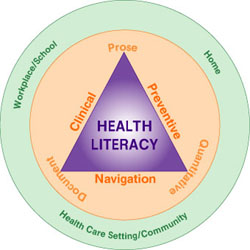Exercise can cut risk of alcohol-related cancer
According to a new medical research, drinkers (of alcohol) who do the recommended amount of exercise can reduce their risk of dying from alcohol-related cancer.
Two and a half hours a week of physical activity can also reduce, but not banish, someone’s chances of dying from any cause, according to the study of 36,370 British patients.
The findings published in the British Journal of Sports Medicine, found that: ‘Stratified analysis showed that the association between alcohol intake and mortality risk was attenuated (all-cause) or nearly nullified (cancer) among individuals who met the physical activity recommendations.’
The authors added: ‘Meeting the current physical activity public health recommendations offsets some of the cancer and all-cause mortality risk associated with alcohol drinking.’
The study, by academics in London, Canada, Norway and Australia, examined the health of men and women over the age of 40 who had provided data for six editions of the Health Survey for England up to 2006, and the 1998 and 2003 editions of the Scottish Health Survey.
‘In this large British general population cohort we found that the association between alcohol intake and mortality risk was moderated by physical activity,’ says the study.
The researchers found that risk of death from either cause increased more slowly among Britons who followed the government-backed advice and did five lots of moderate-intensity exercise a week than those who undertook less physical activity, although the effect was more noticeable for cancer.
Kevin McConway, emeritus professor of statistics at the Open University, said: ‘Does this mean that I don’t have to worry about the effect of drinking on my health, as long as I get enough exercise? Well, no, it doesn’t, for a long list of reasons.’
McConway advised caution. ‘It’s possible the changes in risk patterns in people who exercised were not because of the exercise, but because of something else that just happened to be different.’
Matt Field, professor of psychology at Liverpool University, said the ‘rigorous piece of research’ showed that ‘it appears that physical activity may partially offset some of the harmful effects of drinking, particularly alcohol-attributable cancers’.
The findings have prompted calls for fitness trainers to work in pubs to encourage drinkers to be more active.
‘From our Let’s Get Moving physical activity initiative, we’ve seen the benefits of linking exercise professionals to GP surgeries to improve the health of at-risk patients. This research suggests we should look at similar measures in pubs to help engage harder-to-reach sections of society in physical activity,’ said Steven Ward, executive director of ukactive, which represents the exercise industry.
‘This research might sound like great news for Sunday league footballers everywhere, but as the recently updated chief medical officer’s guidelines show, excessive drinking remains a major health risk.’
However, the researchers found that 27.5% of the patients studied took no exercise at all and almost 61% did not achieve the target of 150 minutes a week.
Nonetheless, the authors believe their findings show that physical activity can promote good health and reduce at least some of the associated harmful effects of drinking, even among those who do no more than the minimum 150 minutes.
‘Our results provide an additional argument for the role of physical activity as a means to promote the health of the population even in the presence of other less healthy behaviours,’ they say.
Physical activity alongwith happiness has a great potential to promote health and mitigate most of the other risks that threaten life!
